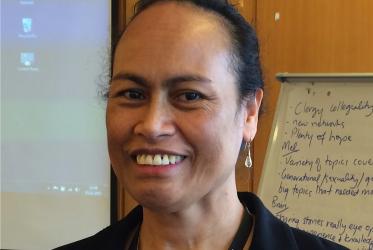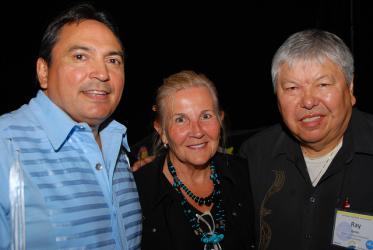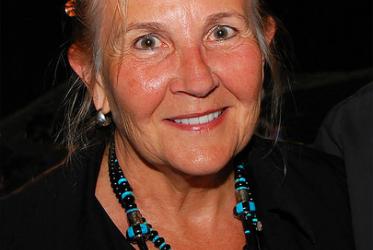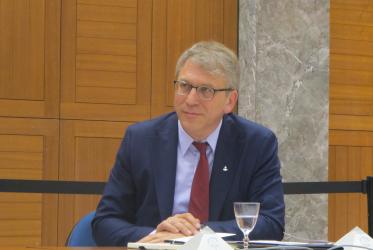Displaying 141 - 160 of 194
02 March 2016
Symposium focuses on religion, violence, extremism
04 February 2016
Church challenge: Welcoming "strangers" in a climate of fear
18 November 2015
At UN, anti-nuclear majorities challenge nuclear-dependent minority
05 November 2015
“Children are the heroes of the aboriginal residential schools story”
25 September 2015
U.S. Black Methodists release documents to help confront racism
23 September 2015
WCC encourages churches to pray on Hiroshima Day
06 August 2015
WCC condemns mass killing in Charleston
18 June 2015









